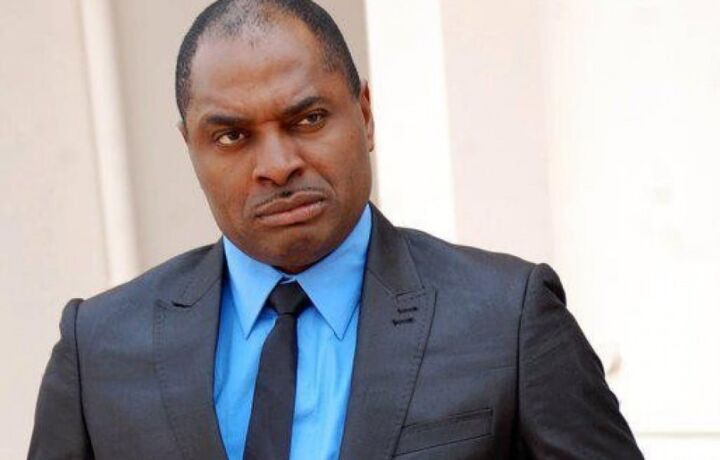Veteran Nollywood actor and politician, Kenneth Okonkwo, has voiced his criticism of Nigeria’s newly instituted minimum wage, arguing that the previous wage of N30,000 was more valuable than the current N70,000 benchmark.
This controversial stance comes in the wake of President Bola Tinubu’s recent approval of the N70,000 minimum wage, following negotiations with joint labour unions.
In a candid discussion on the ‘Mic On’ podcast, Okonkwo expressed his discontent with the wage increase, asserting that it does not accurately reflect the economic realities faced by Nigerians today.

His comments shed light on the broader economic issues affecting the country, particularly the significant devaluation of the Naira.
“The N30,000 minimum wage people were earning before this government came in was of greater value than the current N70,000 minimum wage,” Okonkwo stated.
“You had N500 to a dollar when this government came in, but now it’s N1,500. It went to N2,000 at a point. Do the mathematics.”
By highlighting the dramatic depreciation of the Naira, Okonkwo pointed out that the purchasing power of Nigerian workers has significantly diminished.
When the minimum wage was N30,000, the exchange rate was N500 per dollar, making the wage equivalent to about $60 per month.
However, with the current exchange rate fluctuating around N1,500 to a dollar, the new N70,000 minimum wage amounts to roughly $45 per month, a notable decrease in real terms.
“So what are we talking about?” Okonkwo continued. “When it was N500 per dollar, the minimum wage was $60. Now that the exchange rate is N1,500, it should be about $45 per month.
And see that it’s of less value. So what can they say that they have achieved?”
Okonkwo’s critique underscores the broader economic challenges that Nigeria is grappling with, including inflation, currency devaluation, and a rising cost of living.
These factors have eroded the real income of many Nigerians, making it difficult for them to afford basic necessities despite the nominal increase in wages.
Moreover, Okonkwo’s comments come at a time when many Nigerians are feeling the pinch of an economic downturn exacerbated by global economic pressures and domestic policy decisions.
The devaluation of the Naira has led to increased import costs, which in turn have driven up the prices of goods and services.
This inflationary pressure has rendered wage increases less effective in improving the standard of living for average Nigerians.
The debate over the minimum wage is part of a larger conversation about economic policy and governance in Nigeria. Critics argue that without addressing the underlying economic issues, such as currency stability and inflation control, wage increases alone will not be sufficient to improve the living standards of Nigerian workers.
There is a growing call for comprehensive economic reforms that go beyond wage adjustments to tackle these systemic challenges.
In response to the wage increase, some labour unions have welcomed the change, viewing it as a step in the right direction. However, they also acknowledge the need for further measures to address the broader economic conditions affecting workers.
These unions continue to advocate for policies that will stabilise the economy, control inflation, and ultimately enhance the purchasing power of Nigerian wages.
As the Nigerian government grapples with these economic challenges, it is clear that more needs to be done to ensure that wage increases translate into real improvements in the quality of life for workers.
Kenneth Okonkwo’s critique highlights the importance of considering the broader economic context when implementing wage policies.
Without addressing the root causes of economic instability, wage increases may continue to fall short of providing the relief that Nigerian workers desperately need.
In conclusion, while the new N70,000 minimum wage represents a nominal increase, its real value is significantly undermined by the prevailing economic conditions.
Kenneth Okonkwo’s analysis serves as a reminder of the importance of comprehensive economic reforms that go beyond surface-level solutions to address the deeper issues affecting Nigeria’s economy and its people.
Support InfoStride News' Credible Journalism: Only credible journalism can guarantee a fair, accountable and transparent society, including democracy and government. It involves a lot of efforts and money. We need your support. Click here to Donate
